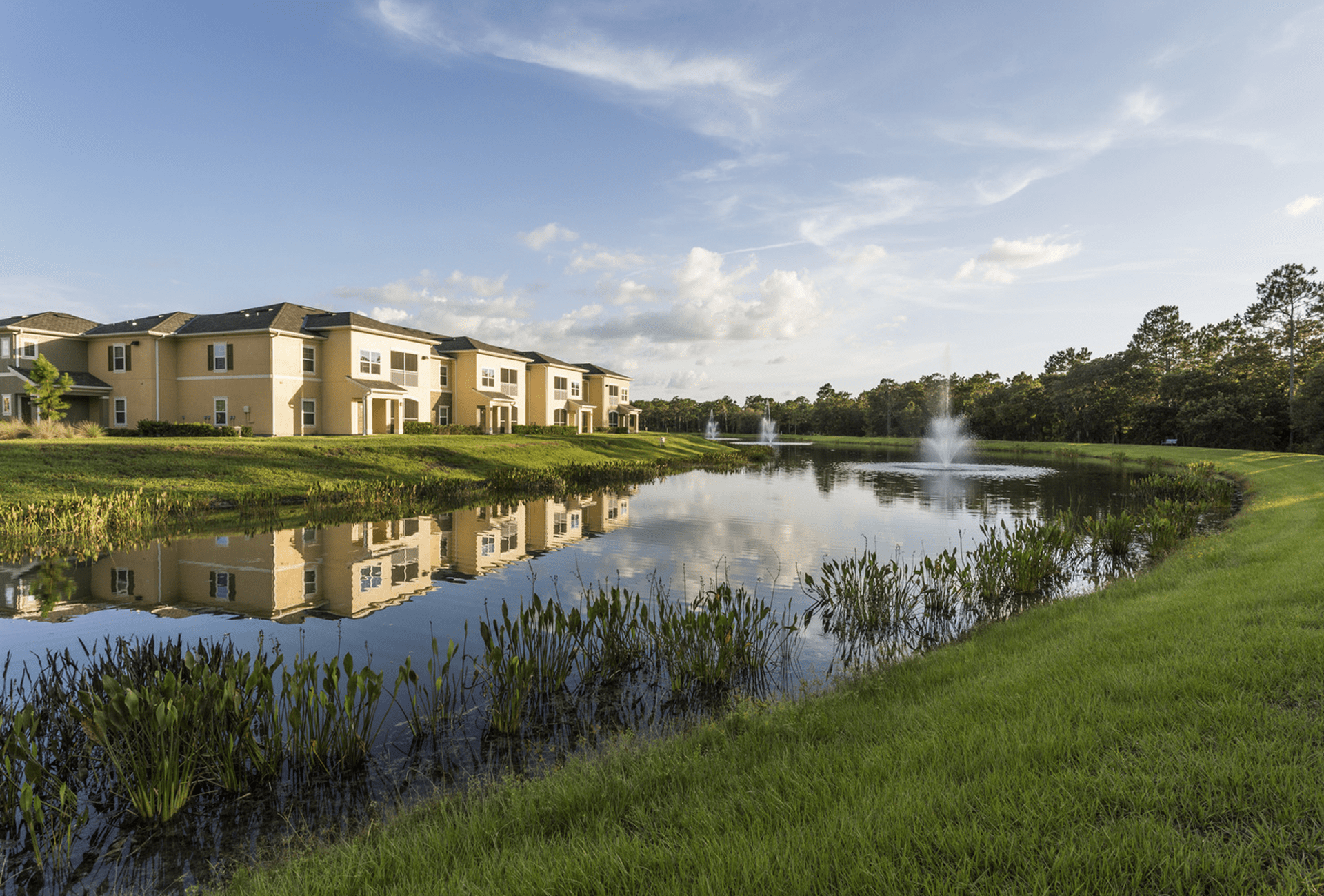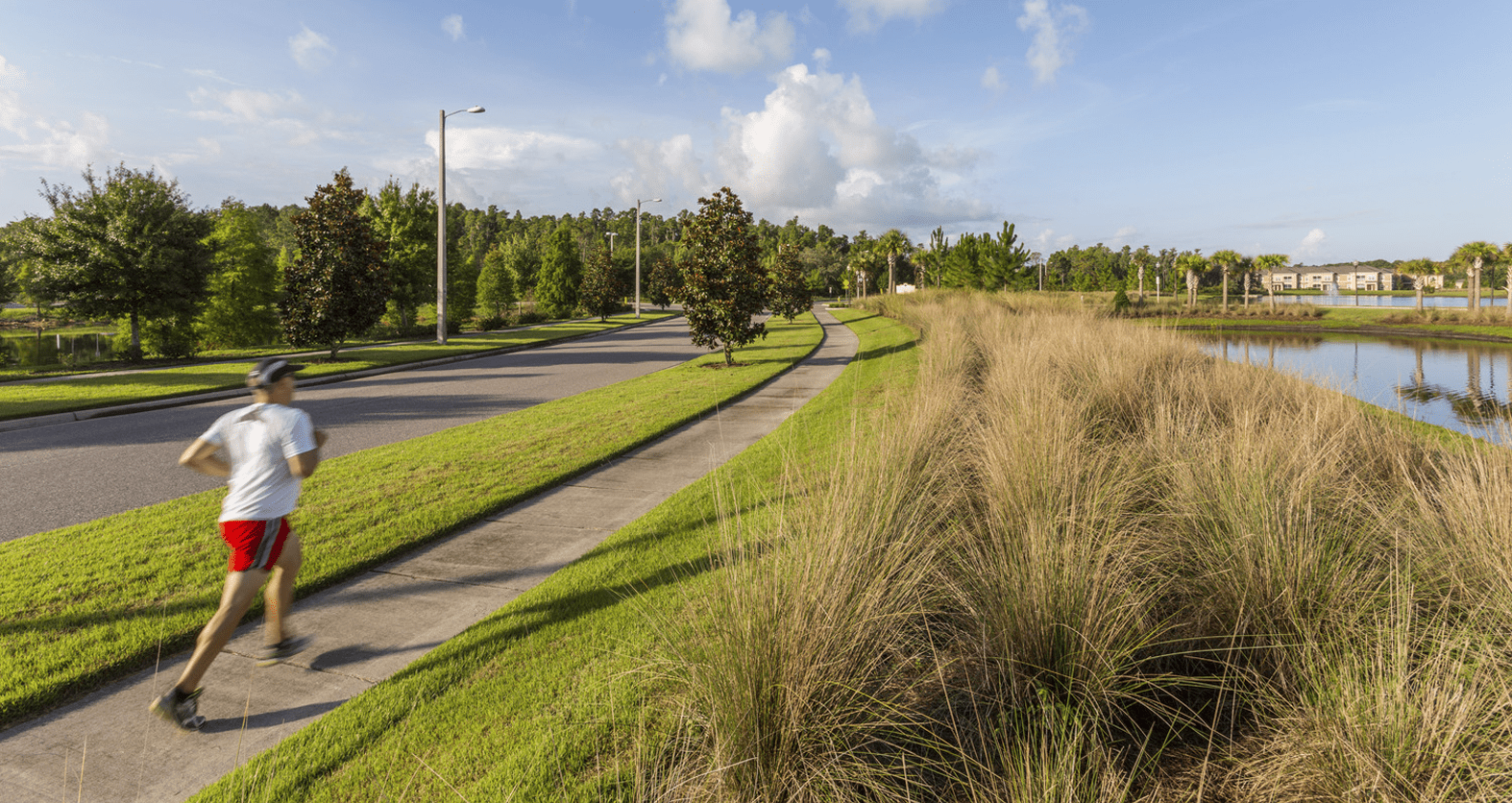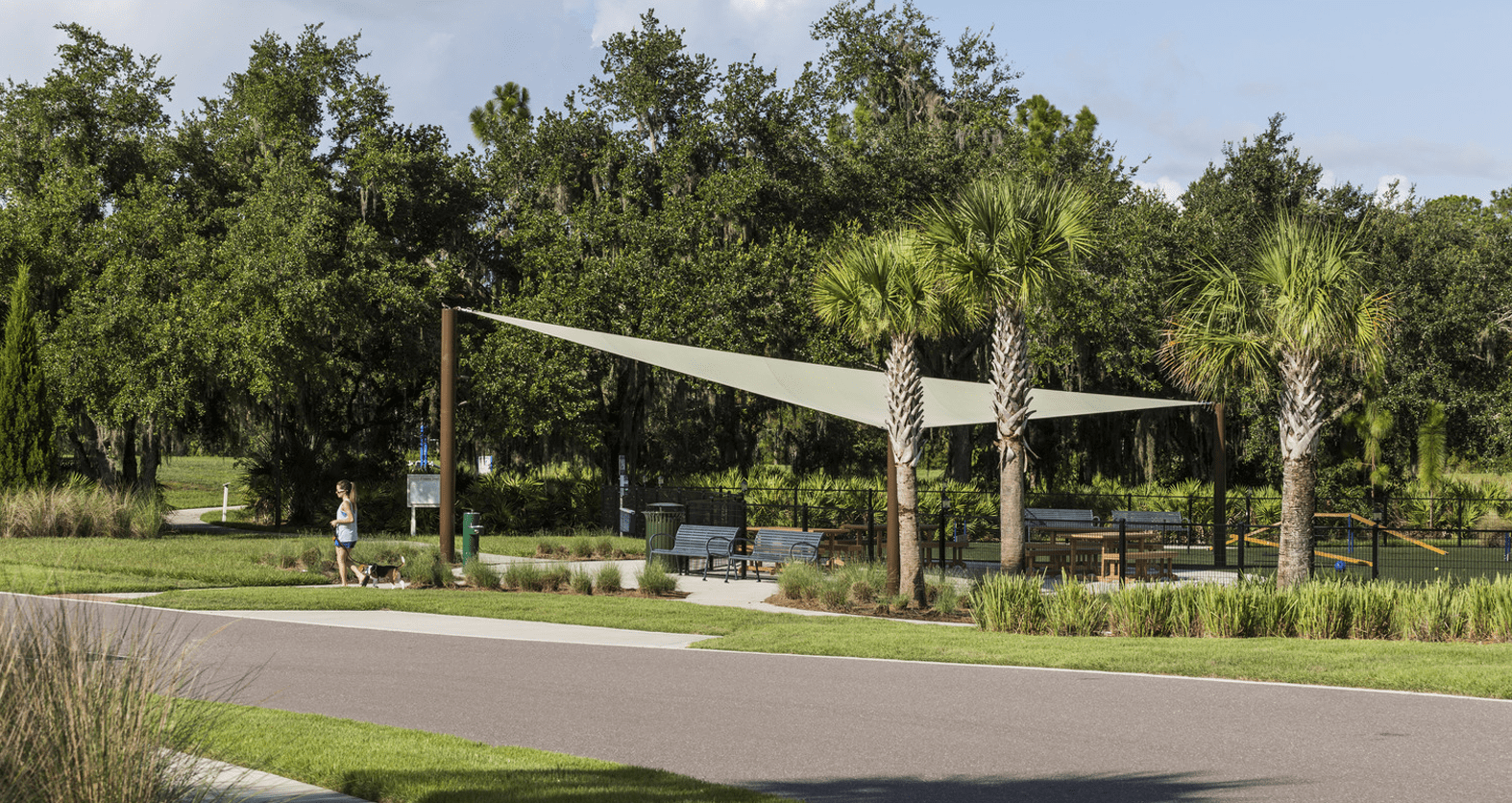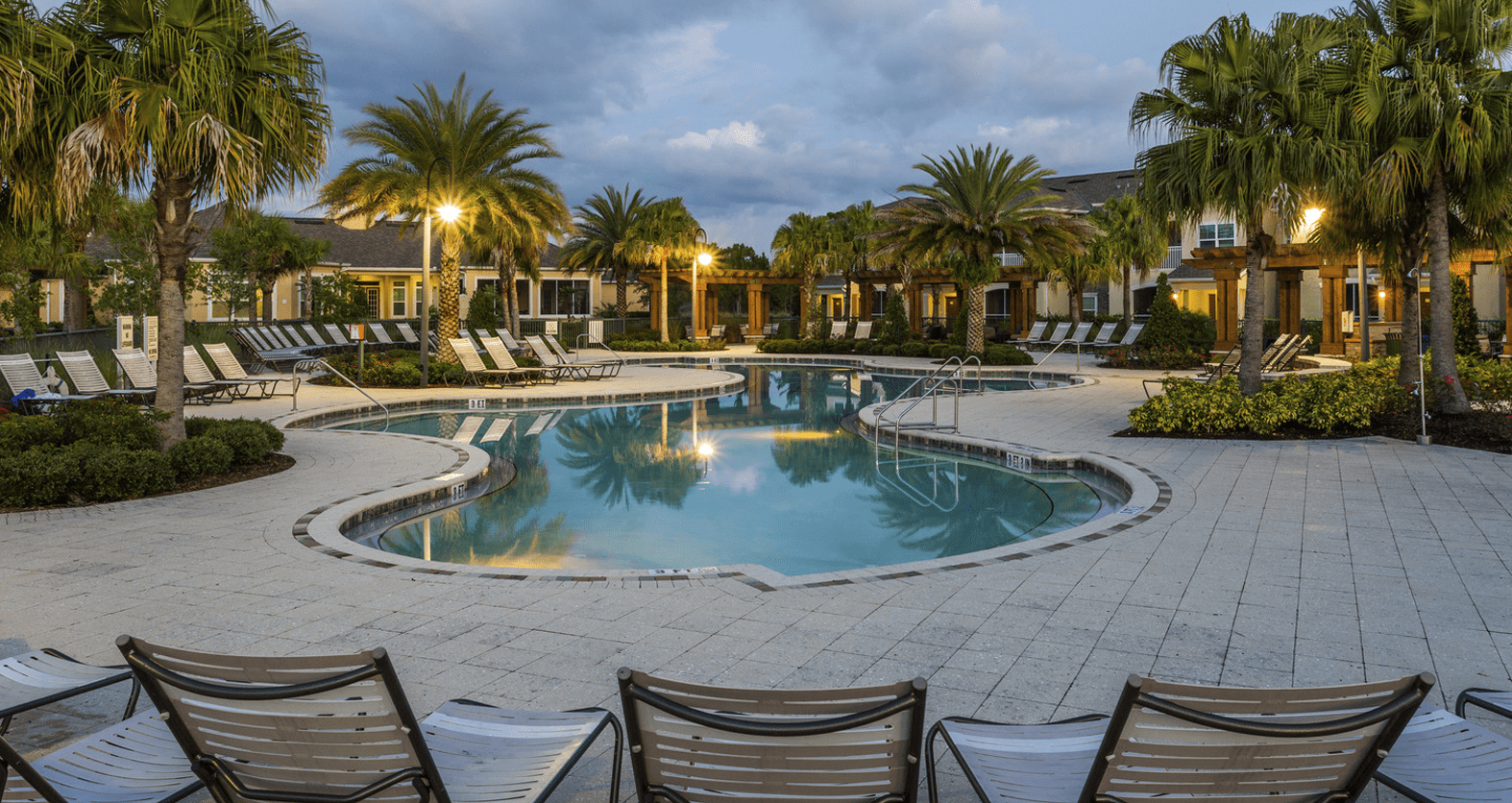Tampa, FL
Colonial Grand at Hampton Preserve
Paradise On the Preserve
status
Completed 2012
client
Colonial Properties Trust
expertise
Residential
services
Landscape Architecture


A Tropical Resort Lifestyle
With palm trees, cabanas, ponds and lush landscaping, this garden-style apartment community could be mistaken for a tropical resort.
Just northeast of downtown Tampa, Florida, Colonial Grand at Hampton Preserve offers a small slice of paradise in a garden-style apartment community. The marsh-like landscape immerses 486 units over 60 acres of naturally preserved lands. Buildings with smaller footprints and naturalized stormwater ponds are positioned around a resort-style pool and amenity area that includes outdoor kitchens and lounges, butterfly gardens and walking paths. The community also offers a large open event lawn and a network of trails and sidewalks to accommodate an active lifestyle.
LandDesign provided land planning, landscape architecture and civil engineering services to accentuate Florida’s natural assets in the form of a garden-style multi-family development on a greenfield property. The project is undergoing LEED certification, supported by a water efficient landscape that swapped turf for ponds and other low maintenance plants.

Colonial Grand at Hampton Preserve uses Florida’s natural landscape as a canvas to translate traditionally mundane site components into beautiful and useful assets, adding valuable detail to the tropical setting and fulfilling the vision for a resort-style multi-family community.
LandDesign positioned buildings to maximize scenic view corridors and used planting and hardscape strategies to evoke the atmosphere of a boardwalk to demonstrate how the site could be optimized to benefit the community.

Among the client’s detailed design criteria for their multi-family properties was a “marketing path” — a walking path intended to be traveled by future residents to demonstrate the compelling benefits of living in their community. This path had predetermined sights, technical details and destinations dictated by the client’s design guidelines. While initially posing a challenge, it became an opportunity to tell the story of the community through a guided experience.
